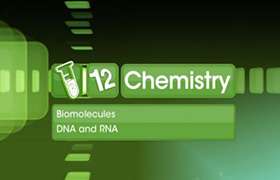CBSE Class 12-science Answered
What are essential and non-essential amino acids?
Asked by Pratibha Roy | 25 Feb, 2012, 01:47: PM
Essential amino acids
Humans can produce 10 of the 20 amino acids. The others must be supplied in the food. Failure to obtain enough of even 1 of the 10 essential amino acids, those that we cannot make, results in degradation of the body's proteinsmuscle and so forthto obtain the one amino acid that is needed. Unlike fat and starch, the human body does not store excess amino acids for later usethe amino acids must be in the food every day.
The 10 amino acids that we can produce are alanine, asparagine, aspartic acid, cysteine, glutamic acid, glutamine, glycine, proline, serine and tyrosine.
The essential amino acids are arginine (required for the young, but not for adults), histidine, isoleucine, leucine, lysine, methionine, phenylalanine, threonine, tryptophan, and valine.
Answered by | 25 Feb, 2012, 08:41: PM
Concept Videos
CBSE 12-science - Chemistry
Asked by siddhisharma9633 | 07 Feb, 2024, 01:28: PM
CBSE 12-science - Chemistry
Asked by praveenk5480 | 31 May, 2021, 11:22: AM
CBSE 12-science - Chemistry
Asked by Yashnikalje567 | 26 Jan, 2021, 03:36: PM
CBSE 12-science - Chemistry
Asked by naikmamata688 | 02 Aug, 2020, 09:41: AM
CBSE 12-science - Chemistry
Asked by shahwajahat1604 | 03 Jun, 2020, 09:10: PM
CBSE 12-science - Chemistry
Asked by lijupalapatta | 18 Mar, 2020, 04:03: PM
CBSE 12-science - Chemistry
Asked by lovemaan5500 | 27 Nov, 2019, 12:23: PM
CBSE 12-science - Chemistry
Asked by rohitraman1115 | 24 Sep, 2019, 05:45: PM
CBSE 12-science - Chemistry
Asked by rohitraman1115 | 19 May, 2019, 12:36: PM
CBSE 12-science - Chemistry
Asked by Atulcaald | 19 May, 2018, 12:05: AM






